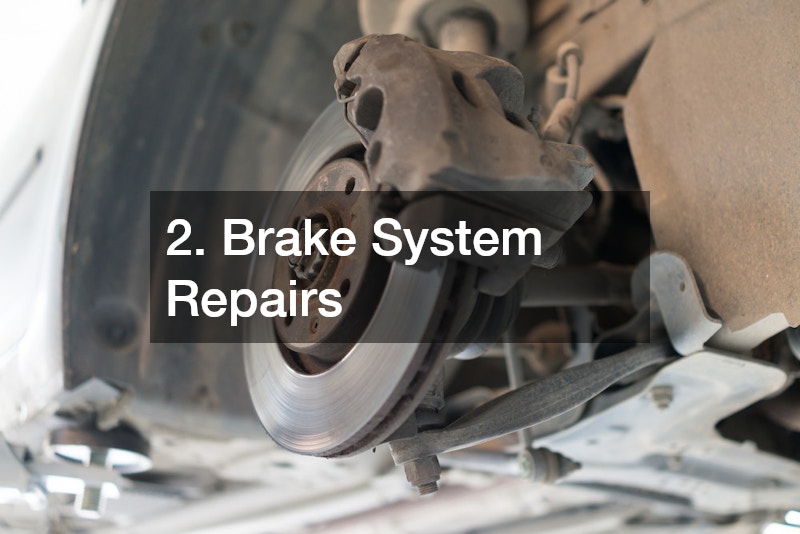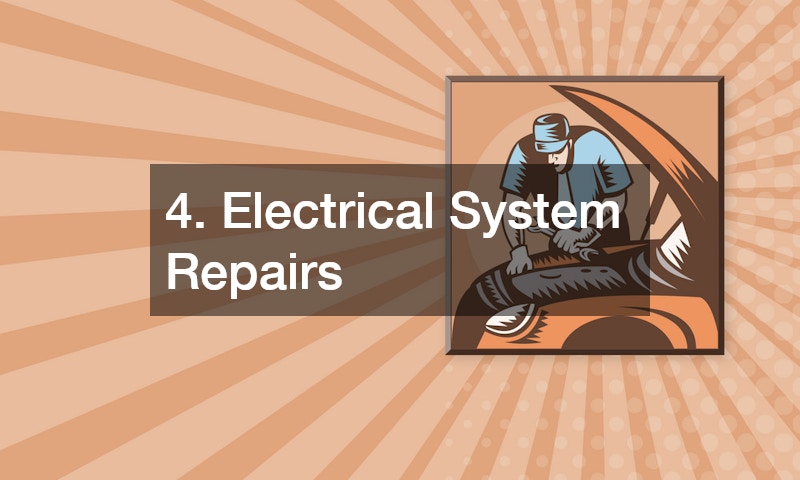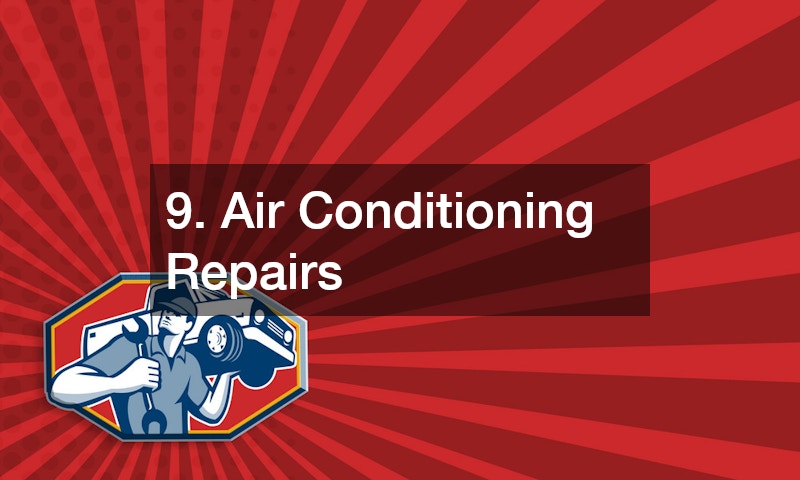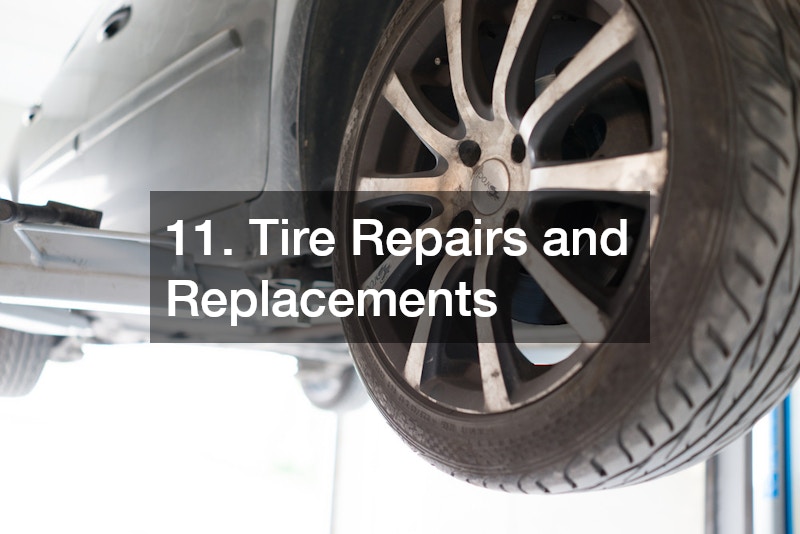As auto travels become more common, the need for auto repair service also increases. Car insurance companies often cover a wide range of repairs to ensure that drivers can maintain their vehicles in good condition. In this article, we will explore the most common car repairs that insurance companies typically cover.
1. Engine Repairs
Engine repairs are essential for auto travels. Insurance companies usually cover engine repairs that are caused by mechanical failures, such as a blown head gasket or a malfunctioning fuel pump. The insurance company may determine coverage based on the cause of the engine issue and whether it was due to normal wear and tear or negligence.
In some cases, insurance may not cover engine repairs that result from lack of maintenance or improper use of the vehicle. It’s important to regularly maintain your vehicle and invest in quality auto parts to prevent costly engine repairs that may not be covered by insurance.
If you experience engine issues while on auto travels, such as strange noises, loss of power, or warning lights on the dashboard, you should immediately pull over to a safe location and contact your insurance provider for assistance. Ignoring engine problems can lead to more severe damage and higher repair costs.

2. Brake System Repairs
Brake system repairs are crucial for the safety of both the driver and other road users during auto travels. Insurance companies typically cover all types of brake system repairs, including brake pad replacements, rotor resurfacing, and brake caliper repairs. It’s important to regularly inspect your brakes and have them serviced to ensure they are functioning properly.
If your brakes fail while driving, remain calm and try to slow down using the emergency brake or shifting to a lower gear. Pull over to the side of the road as soon as it is safe to do so. Contact your insurance provider immediately to arrange for towing and repairs.
By maintaining your brake system and addressing any issues promptly, you can ensure your safety on the road and potentially avoid costly repairs that may not be covered by insurance.
3. Transmission Repairs
Transmission issues can be costly to repair, but insurance companies may cover the cost depending on the cause of the problem. Signs that indicate your transmission may need repairs include difficulty shifting gears, slipping gears, or unusual noises while driving. If you suspect transmission problems, it’s important to have your vehicle inspected by a qualified mechanic.
Transmission replacements can be expensive, and insurance companies may cover the cost under certain circumstances. However, coverage will depend on the terms of your policy and the cause of the transmission failure. Regular maintenance and fluid checks can help prevent transmission issues and prolong the lifespan of your vehicle’s transmission.
If you notice any signs of transmission problems, such as grinding noises or delayed shifting, contact your insurance provider to determine coverage and arrange for repairs. Ignoring transmission issues can lead to further damage and higher repair costs.

4. Electrical System Repairs
The electrical system of a vehicle controls various components, including the lights, power windows, and audio system. Insurance companies typically cover common electrical system issues, such as faulty wiring, blown fuses, or malfunctioning switches. If you experience electrical problems, such as flickering lights or devices not working properly, it’s important to have the electrical system inspected by a professional.
To determine if your car’s electrical system needs repairs, check for warning signs such as dimming headlights, a dead battery, or frequent blown fuses. Regular maintenance and inspections can help prevent electrical system issues and ensure the proper functioning of your vehicle’s components.
If you suspect electrical problems, contact your insurance provider to verify coverage and seek assistance from an auto repair service specializing in electrical system repairs. Prompt attention to electrical issues can prevent further damage and ensure the safety of your vehicle.
5. Suspension Repairs
Suspension issues can affect the handling and stability of your vehicle. Insurance companies may cover suspension repairs caused by wear and tear, such as worn out shocks or struts. Signs of suspension problems include a bumpy ride, uneven tire wear, or a drifting sensation while driving. If you suspect suspension issues, have your vehicle inspected by a qualified mechanic.
Insurance handling of suspension repairs will depend on the cause of the problem and the terms of your policy. Regular inspections and maintenance can help prevent suspension issues and ensure a smooth and safe driving experience. If you notice any signs of suspension problems, contact your insurance provider to determine coverage and arrange for necessary repairs.
For suspension repairs, it’s crucial to seek assistance from auto repair service experts who have experience with suspension systems. Professional repairs can restore your vehicle’s handling and prevent further damage to other components.
6. Cooling System Repairs
The cooling system of a vehicle regulates the engine temperature and prevents overheating. Insurance companies typically cover cooling system repairs for components such as the radiator, water pump, and thermostat. To prevent cooling system issues, it’s important to regularly check the coolant level, inspect hoses for leaks, and have the system flushed and refilled as recommended by the manufacturer.
If your vehicle shows signs of overheating, such as steam coming from under the hood or a high engine temperature gauge, pull over to a safe location and turn off the engine. Contact your insurance provider for assistance and have your vehicle towed to an auto repair service for cooling system repairs. Ignoring cooling system problems can lead to severe engine damage and costly repairs.
To maintain a healthy cooling system, follow the manufacturer’s recommendations for maintenance and have your vehicle inspected regularly. Keeping your engine cool can extend its lifespan and prevent breakdowns on the road.
7. Exhaust System Repairs
The exhaust system of a vehicle helps to reduce emissions and regulate engine performance. Insurance companies typically cover exhaust system repairs, including muffler replacements, catalytic converter repairs, and exhaust pipe replacements. Signs that indicate your exhaust system needs repair include loud noises, a decrease in fuel efficiency, or a strong smell of exhaust fumes inside the vehicle.
If you suspect exhaust system issues, it’s important to have your vehicle inspected by a qualified mechanic to determine the cause of the problem. Insurance coverage for exhaust system repairs will depend on the terms of your policy and the nature of the issue. Prompt attention to exhaust system problems can prevent harmful emissions and ensure your vehicle’s performance.
Contact your insurance provider to verify coverage for exhaust system repairs and arrange for necessary repairs at an auto repair service specializing in exhaust system maintenance. Timely repairs can restore your vehicle’s performance and prevent further damage to the engine and emissions control components.
8. Steering System Repairs
The steering system of a vehicle controls the direction of the wheels and allows the driver to navigate safely during auto travels. Insurance companies may cover steering system repairs caused by wear and tear, such as worn out tie rods or a faulty power steering pump. Signs of steering system malfunctions include difficulty turning the steering wheel, steering wheel vibrations, or a drifting sensation while driving.
If you suspect steering system issues, it’s important to have your vehicle inspected by a qualified mechanic to determine the cause of the problem. Insurance coverage for steering system repairs will depend on the terms of your policy and the nature of the issue. Regular maintenance and inspections can help prevent steering system problems and ensure safe driving conditions.
Contact your insurance provider to verify coverage for steering system repairs and seek assistance from an auto repair service experienced in steering system maintenance. Prompt attention to steering system issues can prevent accidents and ensure the proper functioning of your vehicle’s steering components.

9. Air Conditioning Repairs
A working air conditioning system is essential for comfort and safety on auto travels. Insurance companies typically cover air conditioning repairs caused by mechanical failures, such as a malfunctioning compressor or a refrigerant leak. Signs that indicate your air conditioning system needs repairs include weak or warm airflow, unusual noises from the AC unit, or unpleasant odors coming from the vents.
If you experience air conditioning problems, it’s important to have your vehicle inspected by an experienced technician to diagnose the issue. Insurance coverage for air conditioning repairs will depend on the terms of your policy and the cause of the problem. Regular maintenance, such as changing the cabin air filter and checking refrigerant levels, can help prevent AC issues and keep your system running smoothly.
10. Fuel System Repairs
The fuel system of a vehicle delivers fuel to the engine for combustion, ensuring proper engine performance. Insurance companies typically cover fuel system repairs for components such as the fuel pump, fuel filter, and fuel injectors. Signs of fuel system issues include engine misfires, difficulty starting the engine, or a decrease in fuel efficiency.
If you suspect fuel system problems, it’s important to have your vehicle inspected by a qualified mechanic to diagnose the issue. Insurance coverage for fuel system repairs will depend on the terms of your policy and the nature of the problem. Regular maintenance, such as changing the fuel filter and using high-quality fuel, can help prevent fuel system issues and maintain proper engine performance for auto travels.

11. Tire Repairs and Replacements
Tires are crucial for the safety and performance of a vehicle. Insurance policies may cover tire repairs and replacements caused by road hazards, such as punctures or blowouts. If you experience a flat tire while driving, safely pull over to the side of the road and replace the tire with a spare if possible. Contact your insurance provider to arrange for towing and tire repairs or replacements.
To prevent tire repairs, it’s important to maintain your tires by regularly checking air pressure, rotating them as recommended, and inspecting for signs of wear and damage. Proper tire maintenance can extend the lifespan of your tires and ensure safe driving conditions. Insurance coverage for tire repairs and replacements will depend on the terms of your policy and the cause of the damage.
12. Auto Body Repair
Accidents and collisions can cause damage to the body of a vehicle, affecting its appearance and structural integrity. Insurance companies may cover body repairs for dents, scratches, and major collision damage. Typically, any car detailing services are left to the vehicle owner. Types of body damage typically covered by insurance include fender benders, side swipes, and rear-end collisions.
If your vehicle sustains body damage, contact your insurance provider to report the incident and determine coverage for repairs. It’s important to have your vehicle inspected by a qualified auto body collision repair services to assess the extent of the damage and provide an estimate for repairs. Delaying repairs from auto body shops can lead to further damage and decrease the resale value of your vehicle.
Contact reputable car body shops specializing in body repairs to restore your vehicle to its pre-accident condition. Professional repairs can improve the appearance and safety of your vehicle and ensure that it meets safety standards during auto travels.
13. Windshield and Glass Repairs
The windshield and other glass components of a vehicle play a critical role in visibility and structural integrity. Insurance companies typically cover windshield and glass repairs caused by road debris, cracks, or chips. If your windshield gets damaged while driving, it’s important to address the issue promptly to prevent further damage and ensure your safety on the road.
To determine if windshield or glass repairs are covered under insurance, contact your insurance provider and provide details of the damage. Windshield replacement may be necessary if the damage is severe, such as a large crack or impact that obstructs visibility. Avoid driving with a damaged windshield, as it can compromise the safety of the vehicle and increase the risk of accidents.
Contact a windshield replacement specialist or auto repair service to assess the damage and provide recommendations for car and truck repairs. Professional glass repairs can restore the structural integrity of your vehicle and ensure clear visibility while driving, improving safety for you and other road users.
In conclusion, auto travels can lead to a variety of repairs that may be covered by insurance companies. From engine repairs and touchups to truck lettering to a windshield replacement, it’s important to maintain your vehicle and address issues promptly to prevent costly repairs and ensure your safety on the road. By following manufacturer recommendations for maintenance and seeking assistance from qualified auto repair service providers, you can keep your vehicle in optimal condition and enjoy worry-free auto travels.
